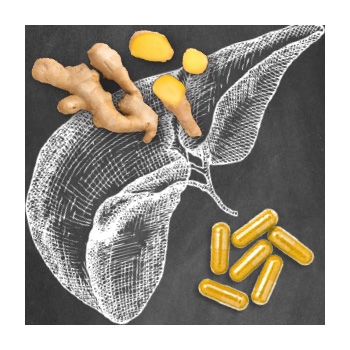


Sign-up for {N}power to get exclusive discounts, newsletters, members-only features, and more!
 Denver - Design District - Alameda and Broadway
Denver - Design District - Alameda and Broadway
368 S Broadway
Denver, CO 80209
United States
 Preferred Store:
Select a Store
Preferred Store:
Select a Store

Age-related cognitive decline is a major concern for many people and has sparked interest in the field of nootropics, which are compounds known to enhance cognitive function. Bacopa has been a leading contender in this research due to its reputation as a brain tonic in traditional medicine and its well-known cognitive benefits. These benefits were confirmed in a 2024 study1 published in the Journal of Psychiatry and Cognitive Behavior, which found that bacopa supplements improve memory and cognition through multiple mechanisms.

The study enrolled 80 healthy adults who were randomized into two groups and given either 300 mg of bacopa extract (standardized to contain 90 mg of bacosides) or a placebo daily for 12 weeks. The participants underwent a series of tests throughout the study to assess their memory, cognitive function, sleep quality, and anxiety levels. Additionally, blood samples were taken to measure the stress hormone cortisol and brain-derived neurotrophic factor (BDNF), which is being studied for its role in the development, maintenance, and function of neurons and is associated with improved cognitive function and a healthy mood.
The researchers found that bacopa led to significant improvements in multiple tests related to cognitive function, memory, sleep, and anxiety. They also observed a significant reduction in cortisol levels and a significant increase in BDNF. The researchers attribute many of these benefits to the bioactive compounds found in bacopa, known as bacosides. This study is one of the most comprehensive on bacopa to date, demonstrating its wide-ranging support for various aspects of cognitive health, as well as its safety and tolerability.
A recent clinical trial found ginger supplementation may benefit those with non-alcoholic fatty liver disease (NAFLD), a condition that is increasingly prevalent among Americans. According to the National Institutes of Health, 25 percent of adults and 10 percent of children ages two to 19 in the United States are affected by NAFLD.2

NAFLD arises when the liver accumulates excess fat without significant alcohol consumption, particularly affecting overweight and obese individuals and those with insulin resistance and type-2 diabetes. This fat accumulation can lead to liver damage by increasing oxidative stress and inflammation, often indicated by elevated liver enzymes like alanine aminotransferase (ALT) and aspartate aminotransferase (AST).
In the trial, 46 participants aged 20-70 diagnosed with NAFLD were randomly assigned to take either a placebo or three 500 mg ginger powder capsules daily for 12 weeks. Blood samples collected at the beginning and end of the study assessed changes in various NAFLD markers such as lipid profiles, antioxidant levels, insulin resistance indices, inflammation markers, and liver enzymes.
While not all measures were affected, ginger supplementation resulted in significant and meaningful reductions in LDL and total cholesterol levels, fasting blood sugar, HOMA-IR (an insulin resistance indicator), C-reactive protein (an inflammation marker), and ALT levels, compared to the placebo. Based on these findings, the researchers concluded that daily ginger supplementation may be an effective complementary therapy alongside diet and lifestyle modification to support liver health in those with NAFLD.



Sign-up for {N}power to get exclusive discounts, newsletters, members-only features, and more!
